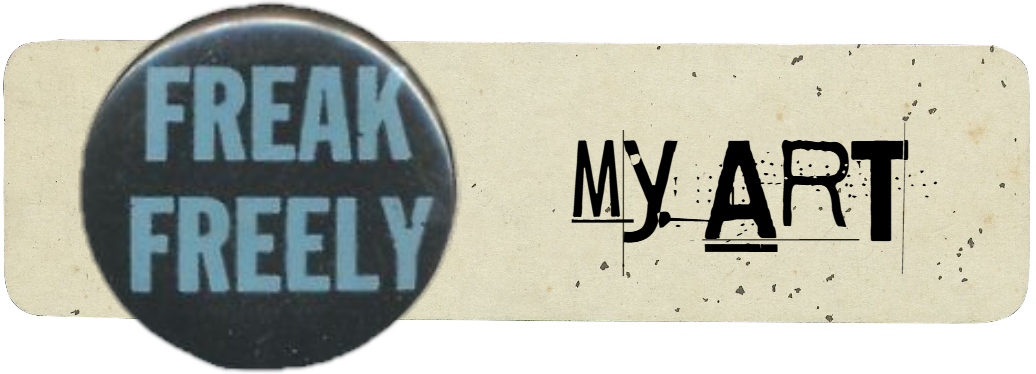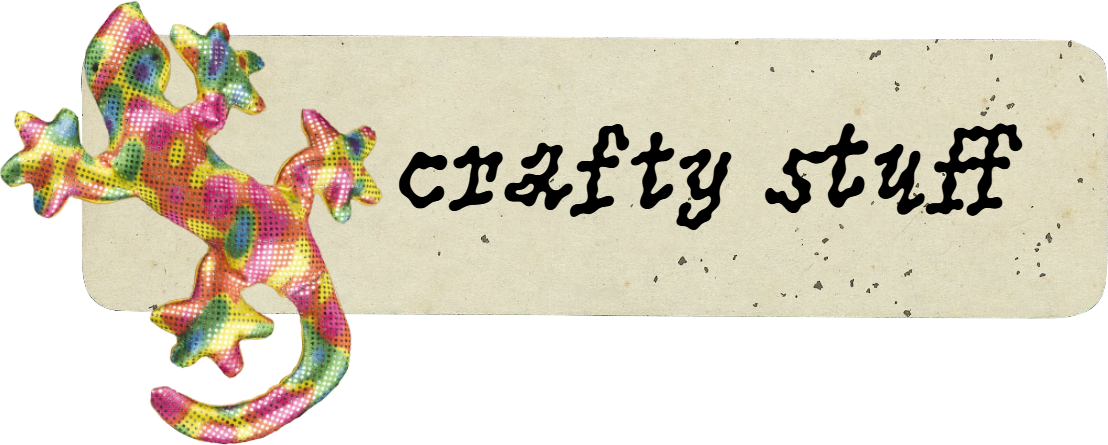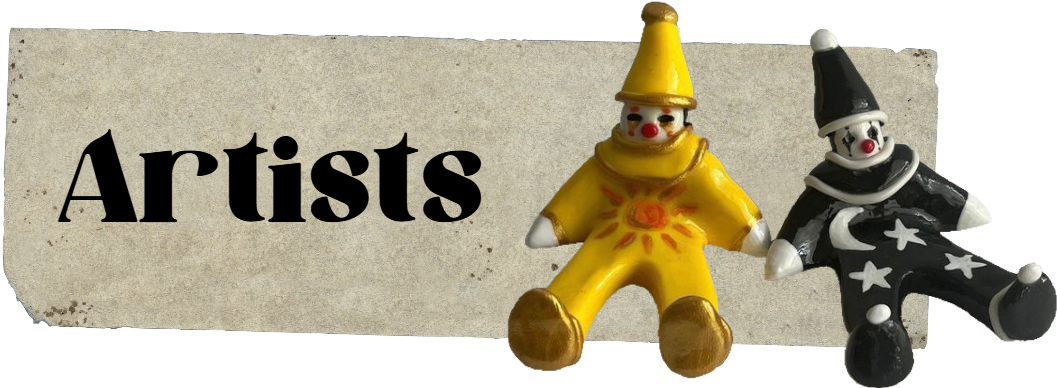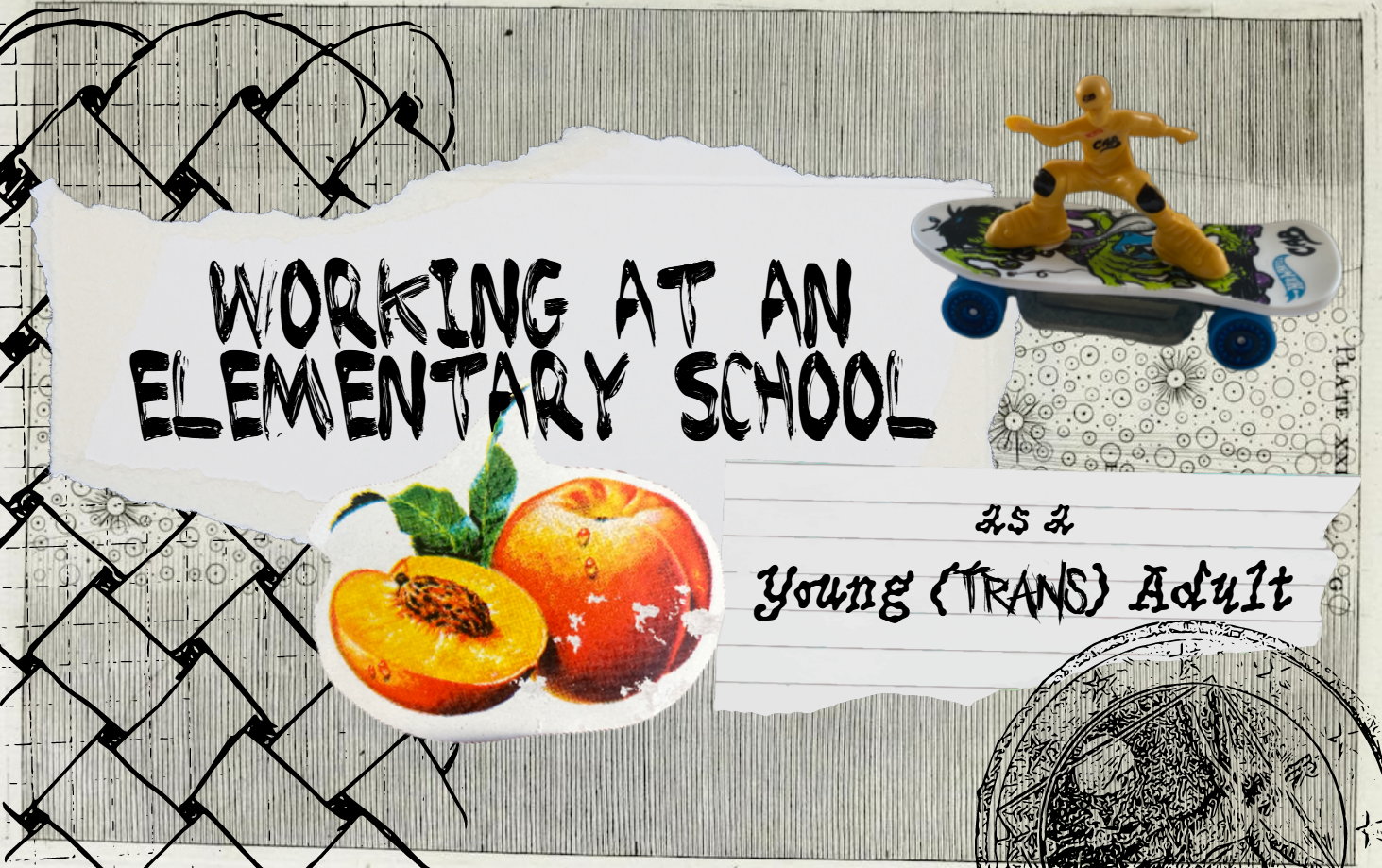
Since first starting my job at an elementary school last fall, I have been spending most of my days with elementary school children – which as a visibly transgender person, is not something that can be done CASUALLY. Having never previously worked with kids before, I had a general assumption about it, but the biggest adjustment was just how my students will approach and conceptualize identity. Especially having just freshly graduated from a liberal arts sociology program, where in-depth leftist discussions of gender/race/class were the norm for me.
Just merely existing as a visibly trans person working with younger children, I am roped into countless conversations I have ZERO interest in having. If it were up to me, I would never talk about gender or sexuality at all; but merely by way of my presence, the topic is introduced by students, and I have very little choice in my engagement. Every aspect of my outward presentation becomes a “teachable moment” – I often try to brush things off and avoid having a whole discussion about it, but teachers around me, at least those who are at least somewhat comfortable discussing it with the kids, use me as an example of gender divergence:
“Yes he looks like a girl, but he is a boy! He said so, so you must listen to what he tells you!”
I have to remind myself that at these ages, frameworks are still very binary and that it’s necessary to challenge that and develop more complex understandings of concepts, but I can’t help but feel like I’m the center of some grand deception, as if I’m pranking these kids by masquerading as a man with visible tits and painted nails.
Being the primary actor in this deception, I have to be mindful of my body and how it is presented, but at the same time, I have to forget it is there. The thing about working with young kids is that they’re very touchy. And you WILL be groped. They rush up for a hug, but they’re too short so their face ends up at your chest. A kindergartner pokes your ass as a joke or reaches up and grabs your tit just to see how it feels. They (usually) don’t mean anything by it, but it serves as a constant reminder my physical reality, and keeps me hyper-aware of my body and how it is being perceived, even if not being done knowingly.
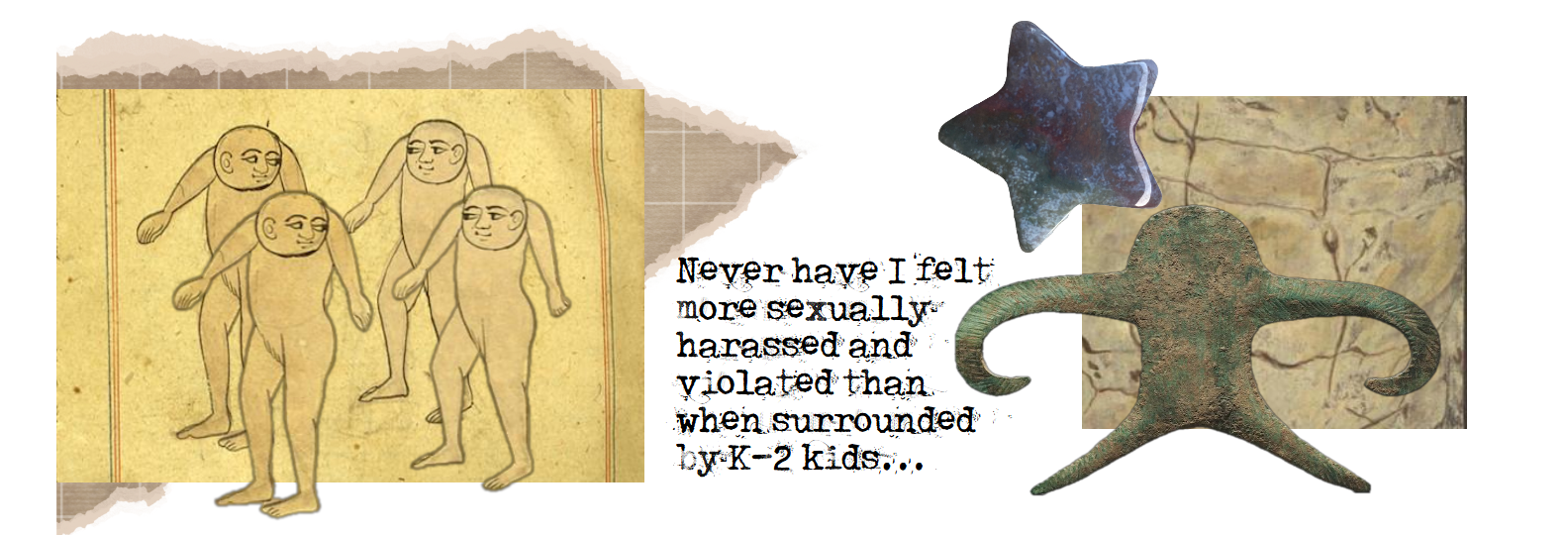
I will give them credit though: they say the quiet parts out loud, which I have MAD respect for. Adults will stare, scan, and analyze, and just make a guess, but never say anything about it - just “ma’am” me and move on. In past relationships, I would notice how I would be regarded by strangers would depend on the identity and presentation of my partner, with (mostly cisgender people, let’s be real) deciphering my identity in terms of how I fit into heteronormative visions of romantic partnerships. When I was with cisgender men and trans men who “passed” better than me, I was perceived as the woman in the relationship. When I dated a trans woman, I was the “man” in a strange perversion of a straight couple, in which neither of us were fully regarded properly, but enough for cis people to “play into our delusion,” as it would feel. When out in public with women, I am most confidently gendered as a woman, and I realized this was likely because the pieces finally (improperly) clicked: I looked like this because I was a MASC LESBIAN! A masc lesbian with a femme girlfriend! It all makes sense. Sorry y’all, still wrong. In recent years, I’ve experienced a new level of villainy: medical professionals who ask for pronouns and preferred names, and then still don’t use them… you know you don’t get woke points for that, right?
Back to the kids, though. They can very clearly explain why they think the way they do, and what about me they deem “girl”, which makes it far easier to discuss with them, because you can point out the unreliability of basing gendered guesses on small cues like painted nails, long hair, or a higher voice. You don’t have to jump into the sociological complexities and historical origins of compulsive heterosexuality and cis-normativity. “I paint my nails because I feel like it!” “but you’re a boy” “yeah, but you just paint it on, that doesn’t stop me!” Often, when boys point out my nails, they only know it’s a girl cue because they were told by their families that they weren’t able to paint their own nails, and then are putting that rule onto me, rather than internalizing it as a family rule, but as a general gender rule.
“I’m sorry your mom doesn’t let you, but I like to do it!”
Sometimes, I also let my trans-ness be known on accident, and confuse the shit out of some of the girls whenever I say something related to my girlhood. They begin talking about makeup, clothing, dating, or periods, I have way too much personal experience for man to have. It’s strangely affirming to have such universal experiences through a shared girlhood, though, even though I feel alienated and distanced from it.
I’ve noticed that there are often several levels to perception from which the kids will approach gender ambiguity, and I often have to try to discern which approach each child is coming from:
- Maliciously misgendering: they understand that I’m trans, even if not explicitly told, and will go out of their way to undermine me. (ex. a group of siblings who kept calling me “Mrs. Jay” – whenever they do, I can easily get them to stop by calling them “Mrs.” in return to demonstrate to them how it feels.) The strangest part is the dichotomy between the moments they’re openly hostile and echoing bigoted comments they learned elsewhere and the moments that they are genuinely really sweet and kind – one minute you think you’re building a solid relationship with them, and the next they’re interrogating you about which bathroom you use.
- Genuine confusion due to lack of adherence to binaries: they don’t mean harm, but just may not know that what they’ve said is considered offensive (ex. “but you have boobs!”)
- Generally cannot discern gender, particularly in language, and regularly mix up pronouns, even for cis people (ex. there are several students with intellectual/developmental disabilities who just struggle with this, and I have to try to not take it personally)
- Amazing allies: some of these kids just GET IT. They have supportive parents, and they know the deal. They will correct other kids, and go out of their way to affirm identities. Even if they’re not queer themselves, they’re there for their favorite teacher, Mr. Jay!
- No goddamn clue: some kids just aren’t even thinking about it. Suddenly they hear someone mention me being a man, and they go “wait, you’re a boy?!” as if they haven’t been calling me by “Mr.” this entire time. They never felt the need to question any discrepancies in gender presentation, just sort of assumed I was cisgender but never commented on it, and when learning otherwise didn’t fight it.
I’ve felt a good amount of guilt for not having the energy after a long school week to do more political/social justice work in my free time, but I try to remind myself that the massive amount of my emotional labor that goes into educating on and normalizing my mere existence to hundreds of kids every day is more than enough for now. The constant reminder that you are ALWAYS being investigated and visually scanned by small children everywhere you go for 8-10 hours a day is plenty, I’m allowed to relax every now and then, right?
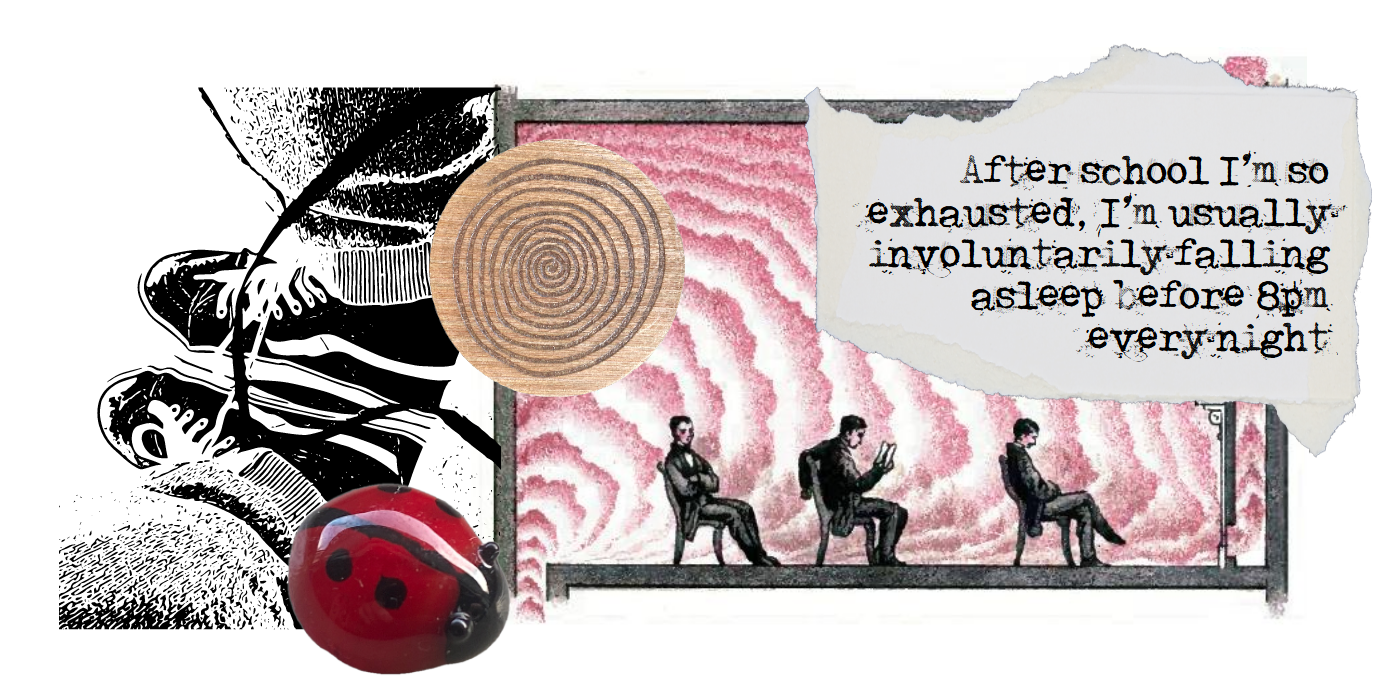
The most common occurrence is it being treated like a joke that the kids need to harp on – I’ll regularly hear students say “___ just said they thought you were a girl!” or “___ just called you a she!”, as if I need a constant reminder than I am seen as a woman as a default, and have to fight to prove otherwise. They frame it as something HILARIOUS and so RIDICULOUS, while it just gradually chips away at the facade. Mr. Jay can only last so long before he gets resentful, kids. Ideally, just going by “Mr.” would be enough, but I suppose that concept isn’t concrete enough yet to withstand contrary evidence.
I live in one of the states that has voted to pass the Parents Bill of Rights Act, meaning our abilities to discusses gender identity and LGBTQ+ issues have been severely weakened. The bill, passed in the US House, was framed as a way of increasing parents’ “access to information about their child’s education,” and “protecting children and dramatically strengthening the rights of parents,” as stated by House Speaker Kevin McCarthy, R-California. The bill generally requires schools to share information regarding curriculum, budget, educational materials used at school, and incidents that occur at school. However, it also dramatically impacts LGBTQ+ students’ privacy and ability to explore identities and presentation at school. School staff are required to disclose anything they are told by students regarding pronouns, preferred names, or accommodations like use of bathrooms that don’t match their sex assigned at birth, meaning staff are required to out students to their parents, which in some cases, can be extremely dangerous for LGBTQ+ children.
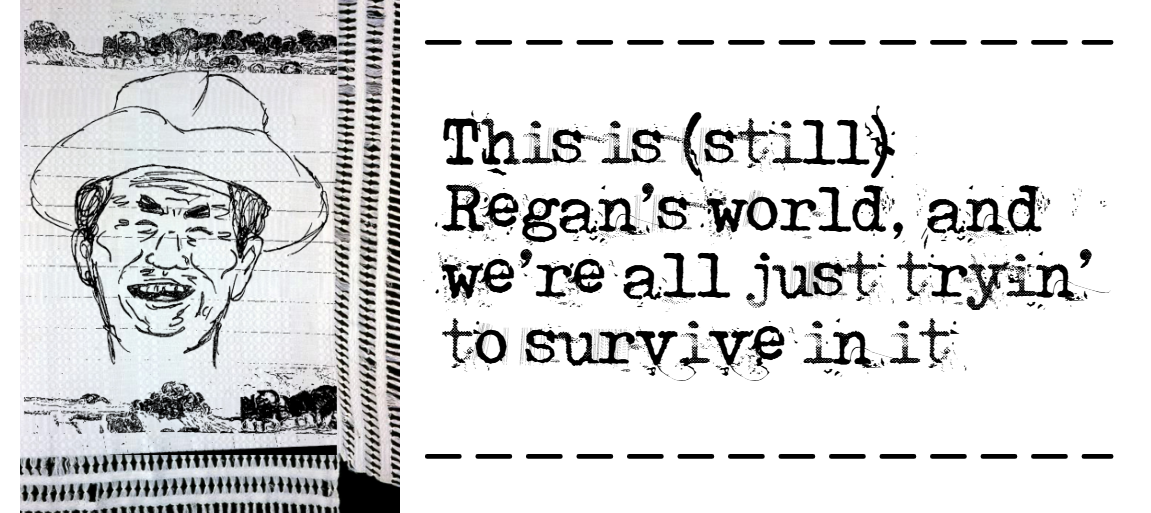
In their statement, Advocates for Youth argues that the bill is just a way for education to become the center of the political “culture war,” not actually about the rights of parents to participate in their children’s education:
The lawmakers introducing this so-called “parents’ rights” bill in the House are the same who are seeking to further ban abortion, attack LGBTQ rights, restrict access to gender-affirming healthcare, remove books and history lessons from libraries and schools, and who are also trying to ban birth control. Let’s be clear, their interest is not in protecting parents or children. In reality, HR 5 takes control away from parents and puts it squarely in the hands of politicians.
The bill was created to protect the sensitivity (read as “cowardice”) of conservative and right-wing parents, who want to have complete control over their child’s world and the perspectives they are exposed to. They want to be able to shape the world to their own vision, in which queer families and students do not exist. Where whiteness and conservative hegemonic ideals reign supreme. At this point, “parents rights” is just code for radical Christian homeschooling and book burning.
Additionally, it took MONTHS for my school’s district to work with lawyers to discern what the bill meant for us, how are we supposed to navigate it on a daily basis? I’m not a lawyer! What if conversation is directed to the topic of kids who have two moms or two dads, I have no idea in the moment what I am/am not allowed to say, and any conversation, if had with the wrong student, could lead to parent backlash and lawsuits. Hate to break it to these parents, but I gotta tell ya – your kids ask a LOT of questions, and they’re not limiting them to topics you would allow them to have with you at home, if you’re extremely anti-LGBTQ, anti-science, anti-”DEI”, or whatever you think happens in an elementary school.
I was shocked when I first started working with kids last year how much they already knew. On my first day with the fourth graders, a group of them immediately asked if I was a lesbian, and I responded “no actually I’m trans.” (Note that I was not at all trained in how to approach these topics, so I was taking the approach of being as open and unapologetic as possible in efforts to normalize those conversations – the bill had not been passed yet.) They countered, “so you’re bisexual?” “I mean yeah, but those aren’t reliant on each other.” They simply nodded and continued with their work.
They regularly talk about furries, vulgar TikTok memes that I always hope they don’t fully understand, gender identity, and politics. Even if parents do all they can to shelter their children and avoid those conversations, they will be conducted at school: if they’re going to be had, safe and trusted adults need to be able to help guide and facilitate them in a healthy way.
One morning, a student came up to me and asked, loudly, in front of his entire class, “are you a boy or a girl? Because you have boobs.” Of course I’ve been asked whether I was a boy or a girl by the kids many times, but this was the first time it was so direct, and just… embarrassing. I always know that’s what the kids are thinking, I always see their skepticism and them eyeing my chest, but they had never said it so outright to my face before. How are you supposed to respond to that, especially when there’s a whole group of kids there too? I initially brushed it off, but then he doubled down. I tried to make a quick joke about how it was weird that he was so focused on my body and move on.
At the end of the day, I debriefed with the school counselor. I hadn’t been present in the meeting before the school year began where they reviewed the Parents Bill of Rights Act and how it impacts us and our work with the students, so she quickly reviewed it with me – she emphasized that it doesn’t have as much power in older grades, but in elementary schools, we are severely restricted in how much we can say in the way of gender identity, even though this age group is quite fixated on it. Essentially, when discussing how it should be handled next time a situation like that arises, she told me to say something along the lines of “I am a man. And as an adult, you need to respect what I say.” Which I know she would not advise that if this wasn’t the situation we were in, but it just really rubs me the wrong way.
In effect, I have to tell the students that they need to respect my identity not as an acknowledgment of my humanity, and as an understanding of difference and the richness of expression, but merely as an acknowledgment of my authority as an adult.
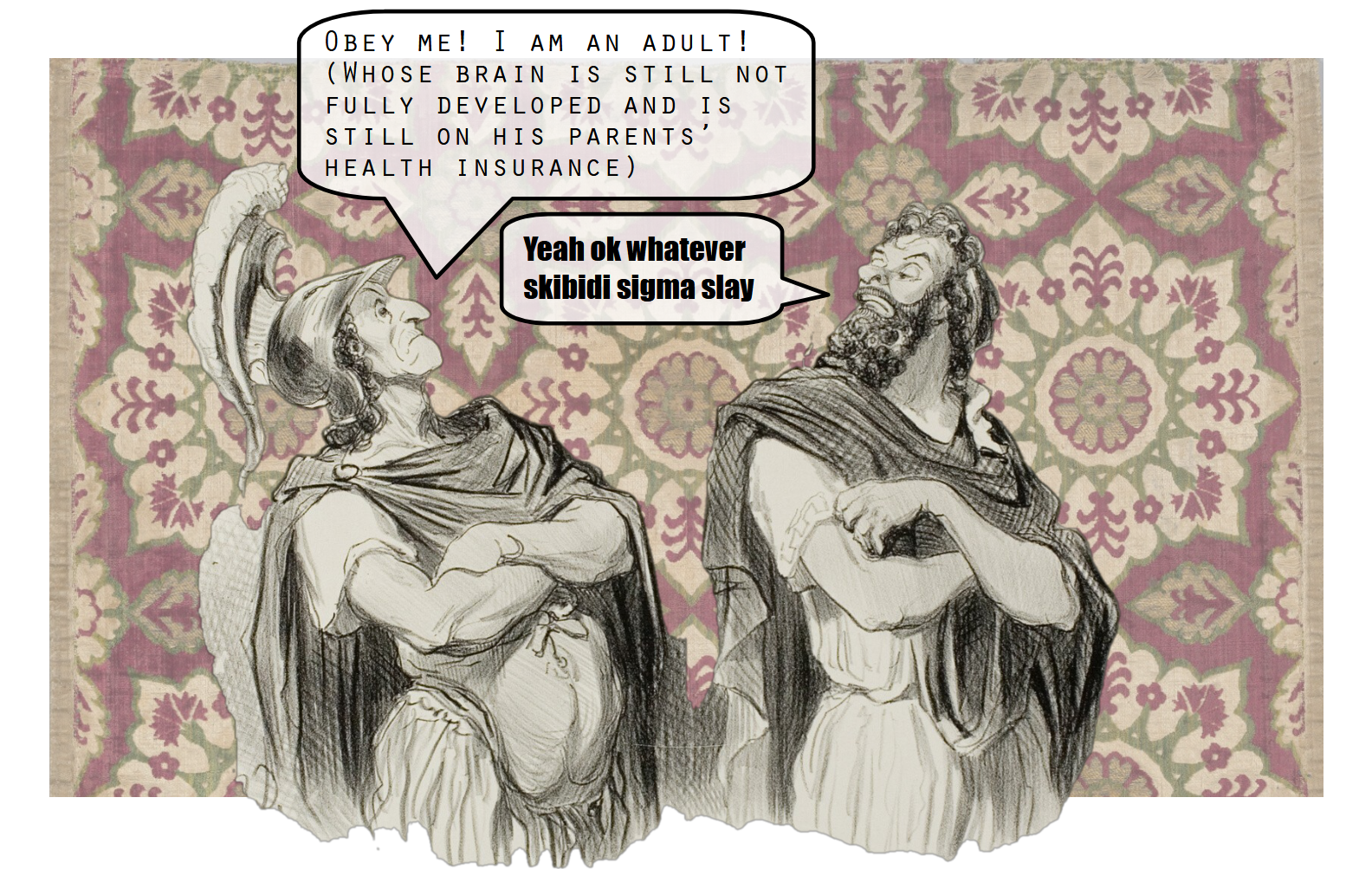
Another phrase that circulates at school is “don’t point something out about someone or make fun of someone for something if they would not be able to fix in a few minutes.” The intention, I’m assuming, is to reference the difference between small, helpful, comments like “hey, your fly is down!” versus comments about unchangeable aspects of a person, like making fun of their nose, etc. However, my mind goes to the oversimplification of changeable versus unchangeable differences. Someone COULD quickly change their clothes, but why should they have to? Someone COULD shortly remove makeup that others think looks weird, but why should they have to? Far too many people still believe that alternative gender presentations are a choice, would they not use this logic to enforce queer erasure?
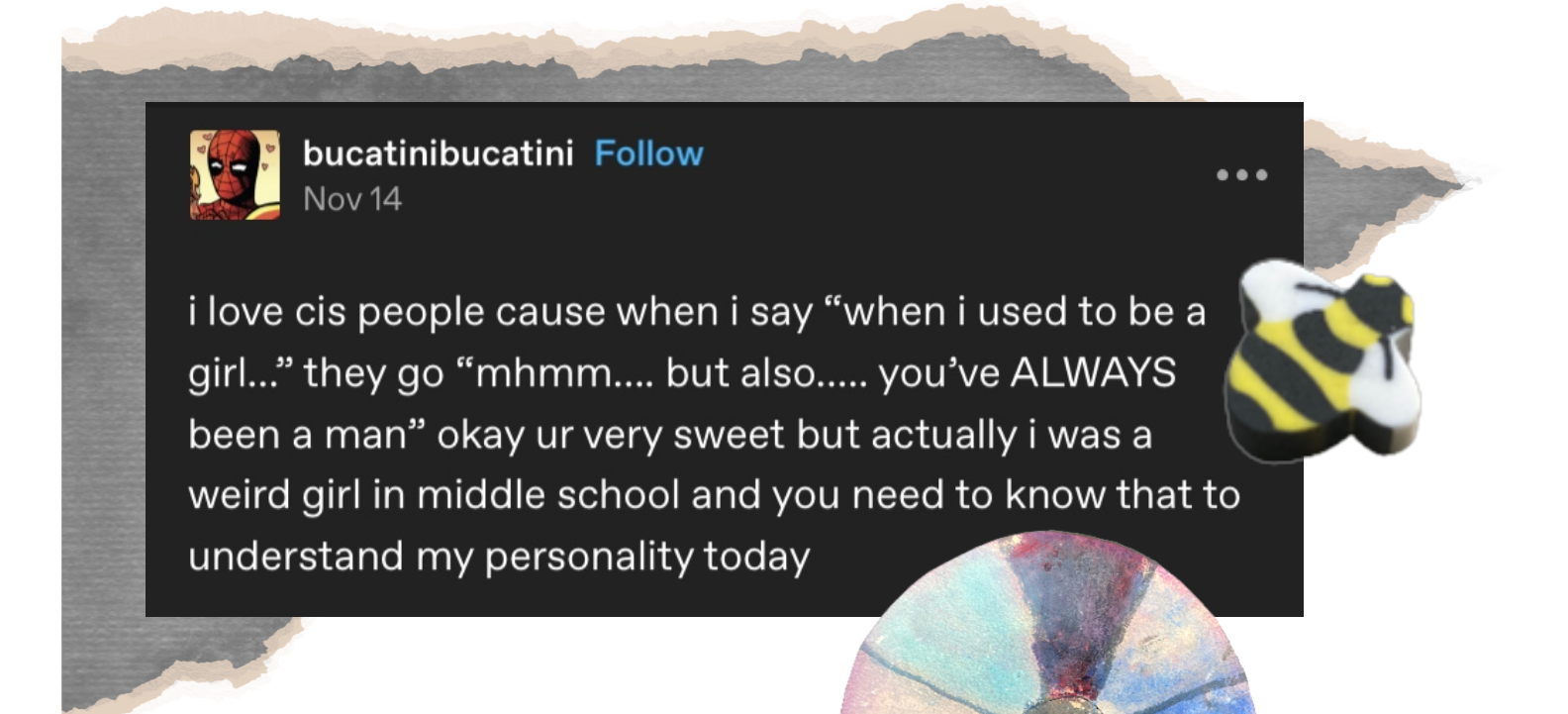
There’s a lot of bullshit, but there’s also been a lot of good. Most of my students’ families that I interact with have been very welcoming and supportive, and the other queer staff members serve as a necessary reprieve from the chaos. Other staff members can be very hit-or-miss, so it’s important to have at least a few that I know are consistently on my side or at least not end up misgendering me. As much as I may be needed and appreciated, there’s always that risk of “Ms.” or “she” that shocks the system, or the accusation that I’m trying to indoctrinate the kids with the queer agenda… but that’s a separate story.


